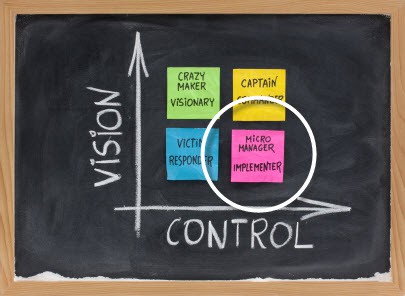Chhavi Firani for BBN Times wrote “The Building Blocks of Successful Project Management” and listed as one of those building blocks to avoid micromanaging which is, “when you are trying to manage an excel sheet rather than a human team. Numerical data points are important but being always adamant on them makes you lose out on your team’s efficiency and makes you seem like a dictator, while you are trying hard to be leader. Allow yourself to move forward by creating a balance and give priority to the project’s overall progress, rather than enforcing extraneous detail”. [end]
Well said! For project managers, the idea of micromanaging is often attractive but misguided. It is attractive because project managers are often asked to plan at a very detailed level. For example, precisely who, what, when, where, and how should a resource work on a particular task. When things go wrong, project managers’ analytical brain kick into action and start looking at the nth level of detail to figure out what went wrong and how to improve. But while micromanaging sometimes work in specific cases, it often misses the bigger picture. Project managers are first and foremost responsible for the integration of all aspects of the project. If they are in the weeds of things, they cannot see the grass, the field, the environment in which they operate. A terrific read on the topic is Harry E. Chamber’s My Way or the Highway: The Micromanagement Survival Guide. A fantastic quick read can also be found at the Harvard Business Review and by Rebecca Knight, titled, “How to Stop Micromanaging Your Team”. – Prof. Dr. Te Wu, the founder Project Management training firm PMO Advisory is among the few people in the world certified in Project (PMP), Program (PgMP), Portfolio (PfMP), and Risk Management (PMI-RMP).

